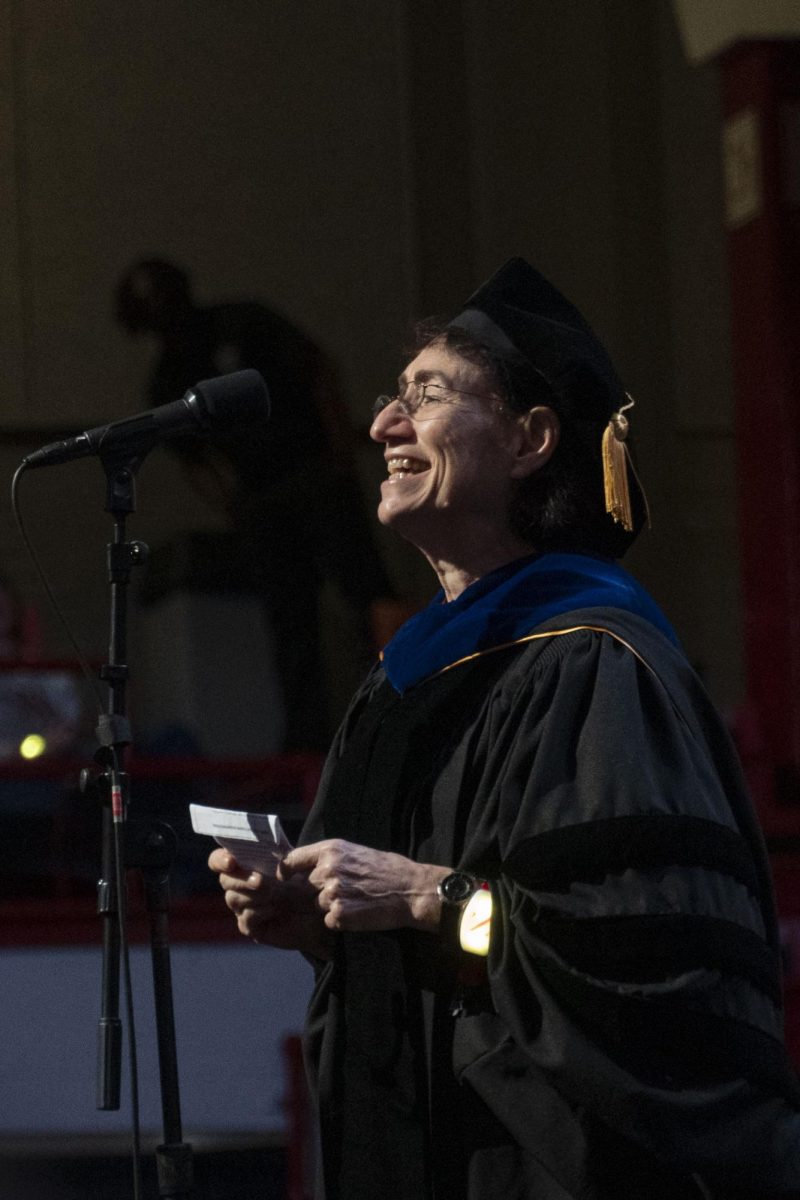By Briyah Paley
Rebecca Kennedy was born with achondroplasia, the most common type of dwarfism. She will never grow taller than four feet.
At 11 years old, Becky, as she is called, is a Girl Scout who plays clarinet and is involved in Little People of America (LPA). She attends a regular public school and her figure now graces the cover of the book, “Little People: Learning to See the World Through My Daughter’s Eyes,” written by her father, Dan Kennedy, media critic for the Boston Phoenix.
“The book is about many things, but mostly that other than her height, she is no different than any other girl her age,” Kennedy said.
Kennedy spoke to students in the Curry Student Center last Wednesday as part of a series of speakers sponsored by the School of Journalism.
Kennedy graduated from Northeastern in ’79 with a B.A. in journalism. Since then, he has been a fixture of Boston media. He said that making the transition from journalism to writing books wasn’t an easy one, but this is a book he knew he had to write.
“I guess you could say I began researching the book when our daughter was born,” he said.
Almost immediately, the family’s doctor noticed that Becky’s head was large. Once brain damage was ruled out, she was diagnosed with dwarfism. She would have a normal intelligence, life span and reasonably good health, but the news was still shocking. The Kennedys prepared for two years of overnight nurses, loud machinery and the fear that their baby daughter might not make it.
Kennedy spoke about treatment options that he and his wife, Barbara, explored and the decision to which they eventually came.
“We assume that dwarfism can be treated like other disabilities such as diabetes,” Kennedy said. “But there are unexpected complications and tradeoffs. What are you doing to this kid in the long run?”
The Kennedys chose not to put their daughter through surgery that would lengthen her legs because they did not want her to feel that there was something wrong with her the way she was.
There are 50,000 people living in the United States who have dwarfism.
LPA currently has 8,000 members. Half of these members are dwarfs and the other half are family members of people affected by the disease. There are 200 types of dwarfism and it is hereditary. There is a good chance Becky’s children will have it, the odds of which will increase if she has children with another dwarf.
Kennedy said dwarfism seems to affect all races equally, although LPA is mostly white, an issue the organization has been trying to fix by reaching out to African American dwarfs.
“I don’t mind if people are staring [at Becky] because it’s out of the norm. I want to get people to think about difference in ways they haven’t before,” Kennedy said.
After Kennedy’s talk, Jesse Stern, a junior communications major, said that he was interested in Kennedy’s book.
“I try to come to these events every week,” he said.
Rachel Schindler, a sophomore journalism major, plans to buy the book. She was writing about the event for a class assignment.
“I had done background [research],” she said. “I read a lot about his book and I chose to come and see him.”
Steve Burgard, the director of the School of Journalism said he’s a fan of Kennedy.
“He’s one of the best writers in the country,” he said. “He’s done one of the most difficult and challenging things you can do, which is to write about a deeply personal event.”
Journalism Professor Bill Kirtz, who helped organize the event, said he also admires Kennedy’s work.
“There are three components of journalism,” Kirtz said. “There’s cranking it up, being a smooth writer and a superb reporter. Dan Kennedy does it all better than anyone I know.”








